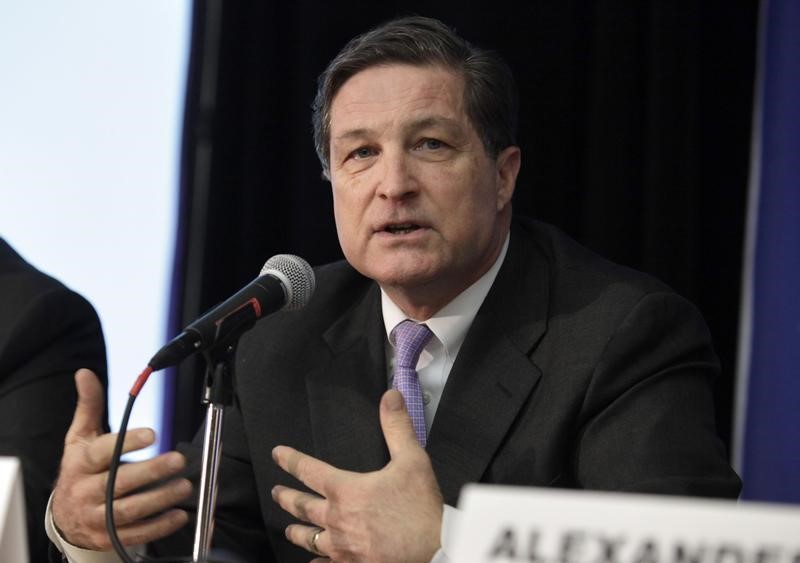By Jason Lange
RALEIGH, N.C. (Reuters) - The Federal Reserve may need to raise interest rates more than four times this year if oil prices stabilize, the dollar stops appreciating and inflation surges toward the U.S. central bank's 2 percent target, a Fed policymaker said on Thursday.
Richmond Federal Reserve President Jeffrey Lacker said in a speech to a business group in Raleigh, North Carolina, that he was confident inflation, which has been under the Fed's target for roughly three years, would move higher soon barring an unexpected shock to the economy.
He said the four rate hikes that Fed policymakers generally expect will be needed this year could be off the mark if inflation moved "rapidly" toward 2 percent once oil prices bottomed out and the value of the dollar peaked.
"A more aggressive path would be in order," Lacker said, adding that he saw early signs of faster wage growth.
But if inflation did not soon move back toward 2 percent following a bottoming of oil prices and the dollar's peak, "a shallower path for interest rates would make sense," said Lacker, who is not a voting member of the Fed's rate-setting committee this year although he will participate in its discussions.
The Fed raised its target interest rate by a quarter point on Dec. 16, the first hike in nearly a decade.
Lacker told reporters after his speech that the Fed is keeping a close eye on this week's turmoil in China's financial markets, although he said it remains unclear if the drop in the value of Chinese stocks and the yuan currency will have a "substantial" impact on the U.S. economy.

Lacker, who had pressed his Fed colleagues for a rate hike for much of 2015 when he had a vote on policy, expects strong consumer spending to drive the U.S. economy this year. He also said he would like the Fed to start whittling down its massive balance sheet of bond holdings "sooner than later."